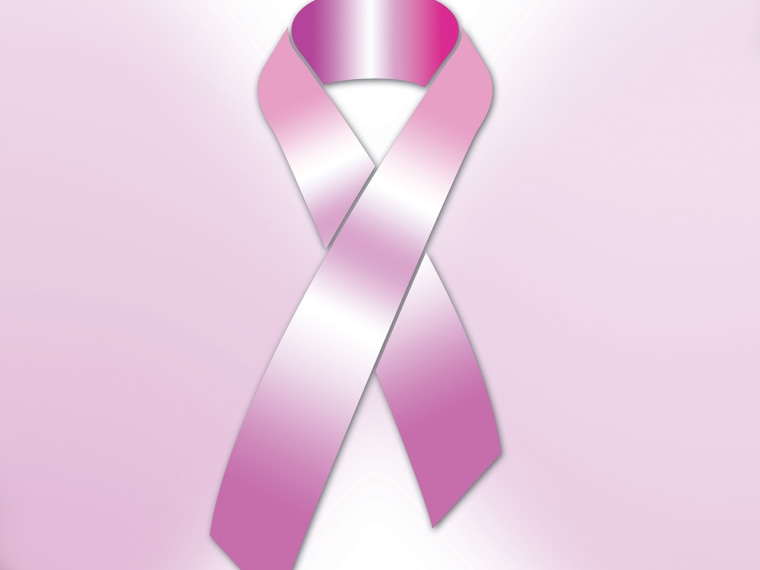Researchers say they can add a new option to the toolkit for women who want to lower their risk of breast cancer – a pill called anastrozole.
A study released on Thursday shows that the pill, which is available generically, lowered the risk of breast cancer by 53 percent in women at high risk of the disease. That’s a little bit better than the other drugs now being used to prevent breast cancer, such as tamoxifen. And women taking anastrozole had fewer side-effects, the researchers told the San Antonio Breast Cancer symposium.
“The efficacy is clearly better and we think the side-effects are better than tamoxifen,” said Dr. Jack Cuzick of King’s College London, who led the study. “There had been lots of concern about aches and pains. Now we can say most of them have nothing to do with the drug.”
The findings, also published in the Lancet medical journal, add to the list of choices available to women considered at high risk of breast cancer. Tamoxifen was the first drug shown to not only treat breast cancer, but to prevent it in women at high risk. Since then two others have been added to the list. Anastrozole could be the fourth.
All the pills have side-effects, some of them unpleasant. They can include hot flashes and blood clots. Tamoxifen and a related drug, raloxifene, can strengthen the bones but the so-called aromatase inhibitors can cause aches and pains and may weaken the bones.
Aromatase inhibitors include anastrozole, sold generically and under the brand name Arimidex; exemestane, made under the brand name Aromasin; and Femara or etrozole. They're used to treat breast cancer and to prevent it coming back in women who have had it once. Exemestane can also be used to prevent breast cancer in women who have never had it but who have a high risk and the new study shows anastrozole can, too.
Studies have shown that women who took tamoxifen for five years were 50 percent less likely to have their cancer return and the aromatase inhibitors have similar effects. But if a breast cancer patient has not gone through menopause, tamoxifen is the only safe hormone-based drug to take.

Breast cancer is the second-biggest cancer killer of America women, after lung cancer. The American Cancer Society says 232,340 cases will be diagnosed in 2013, and more than 39,000 people will die of breast cancer this year. Separately on Thursday, the World Health Organization's International Agency for Research on Cancer reported a sharp rise in breast cancer globally.
It reported that 1.7 million women around the world were diagnosed with breast cancer globally, a 20 percent increase since 2008. Death rates have risen 14 percent.
“Breast cancer is also a leading cause of cancer death in the less developed countries of the world. This is partly because a shift in lifestyles is causing an increase in incidence, and partly because clinical advances to combat the disease are not reaching women living in these regions,” says Dr. David Forman, who led the data gathering effort at IARC.
The study released on Thursday is the first randomized trial to examine anastrozole specifically. It included more than 3,800 women past menopause and aged 40–70 from 18 countries.
Women were considered at high risk of breast cancer if they had two or more blood relatives with breast cancer, a mother or sister who developed breast cancer before age 50, or a mother or sister who had breast cancer in both breasts, or had certain high-risk types of benign breast disease.
Half were given an anastrozole pill and half got a dummy pill to take every day for five years. After five years, 2.8 percent of the women who took the drug got breast cancer, compared to 5.6 percent of those taking a placebo.
The drug prevented so-called hormone receptor positive cancers – those affected by estrogen. It didn’t have an effect on the rate of other types of breast cancer, especially so-called triple negative breast cancer. It also reduced a type of pre-cancer called ductal carcinoma in situ (DCIS), Cuzick’s team reported.
“The reported reductions are larger than are those reported for tamoxifen or raloxifene. Therefore, anastrozole is an attractive option for postmenopausal women at increased risk of breast cancer,” they wrote.
Women who took placebo were no more likely to die of their breast cancer than women who got anastrozole, perhaps because all the women got annual mammograms and other careful checks. Any that developed tumors were treated right away.
Dr. Clifford Hudis, a breast cancer expert at Memorial Sloan-Kettering Cancer Center and president of the American Socity for Clinical Oncology, says because anastrozole is available generically it should be cheaper too
“It’s important because it’s another tool,” he says. "It's a widely available tool that's been given to million of people and has a proven safety record." Women with fragile bones should stick to raloxifene, however, he said. The aromatase inhibitors turn estrogen all the way off and that’s not good for everyone.
Raloxifene, an osteoporosis drug sold under the brand name Evista, can also prevent breast cancer but it can cause blood clots.
Cuzick says women in some trials of aromatase inhibitor drugs complained about aches and pains. In his trial, 58 percent of the women taking placebos complained of aches and pains, compared to 64 percent taking anastrozole. Women getting the real drug did have much higher rates of hot flashes and dry eyes, however.